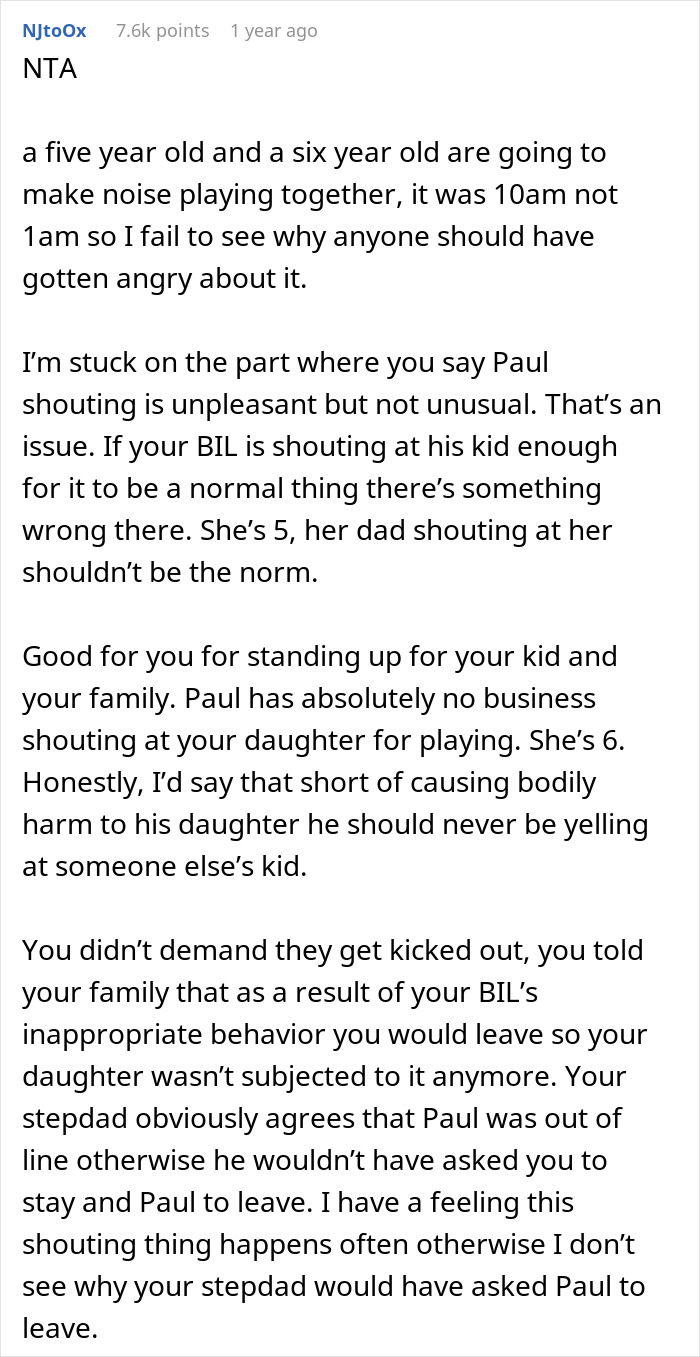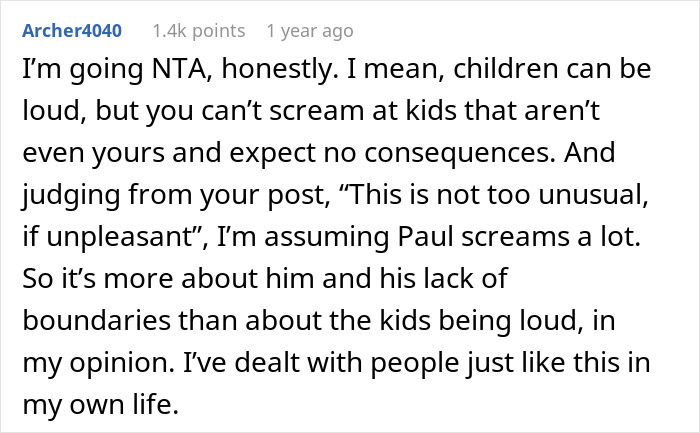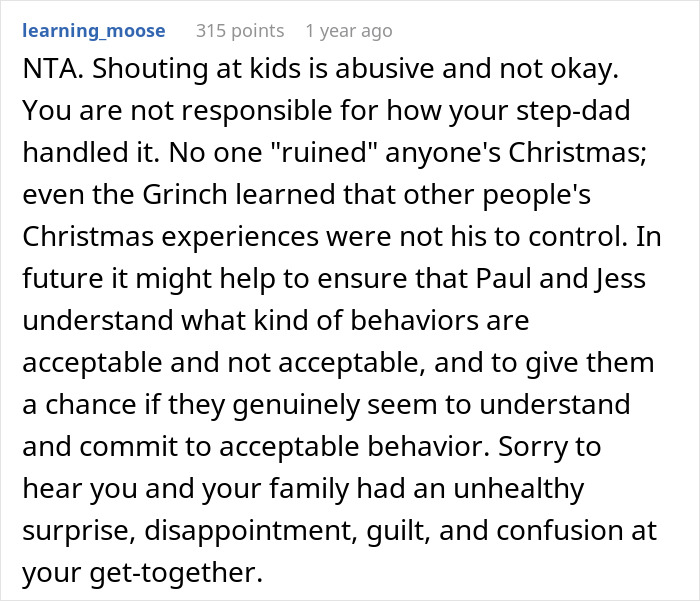It’s not just what you say—it’s how you say it that makes all the difference in the world. The very same message or request can take on a completely different message when someone changes their tone of voice and body language. And parents should know better than to shout at children, whether they’re their own or not.
Redditor u/throwaway-xmasmess opened up about a spot of holiday drama with her family. She shared how her stepsister’s husband was banned from celebrating Christmas with all of them after he shouted at his niece, the OP’s daughter, for waking him up. You’ll find the full story as you read on.
Nobody should be shouting at kids for being a bit noisy during the holiday season

Image credits: nd3000 / envato (not the actual photo)
One woman went viral after sharing how she dealt with brother-in-law who yelled at her daughter






Image credits: Prostock-studio / envato (not the actual photo)






Imae credits: amenic181 / envato (not the actual photo)



Image credits: throwaway-xmasmess
Constant yelling can mean that the person is chronically exhausted or that they have deep-seated issues that need to be resolved
There is a world of difference between someone who’s assertive or gently raises their voice for impact and someone who shouts, screams, and yells to scare others. Spreading fear and causing tears won’t get you far in life—probably only to the front door after you’re kindly asked to leave.
The long and short of it is that all parents ought to strive to handle misbehaving kids in healthy ways, instead of resorting to threats. However, in the case of redditor u/throwaway-xmasmess’ story, her daughter didn’t really do anything wrong.
It’s not the little girl’s fault that her uncle is tired and needs sleep. It’s not her fault that his chosen career path is so exhausting. It’s not her fault that he works odd hours. And it’s certainly not her fault that he seems to have anger issues. You cannot blame kids for ‘ruining’ your sleep when they’re playing and having fun during the holiday season.
When you get to the core of things, the OP’s brother-in-law seems to have some deep-seated issues that he needs to address. He may need to start taking better care of his basic needs if he’s constantly on edge and snapping at everyone else due to his exhaustion and burnout.
If you want to solve your anger issues, you need to be prepared to make some changes in your life, both big and small
That means getting proper sleep, fixing his diet, and getting lots of movement… and not attending family functions if he’s feeling ‘cranky.’ That means taking more walks in nature to destress and taking up meditation to work through all of those uncomfortable feelings.
However, if the OP’s brother-in-law has serious anger issues, whether he’s tired or not, he may need to take some more serious steps to address these problems. That might mean signing up for therapy or anger management courses. That way, the next time someone ‘dares’ to wake him up, he’ll be able to respond in a calm, cool, and collected manner.
Aside from therapy, he may need to consider changing his relationship with his job as well. For instance, he may want to talk to his boss about changing his work hours if he can’t take it anymore and his bad mood is breaking his family apart.
Or, as a last resort, if he’s constantly on edge and taking his frustration out on his loved ones, he might want to go down a different career path. One where he’s happier, more in control, and able to handle the pressure.
Controlling your impulse to snap at someone, even if just for a moment, is a good first step
The fact is that we all get angry at times. It’s natural. Though we might not be able to fully control the impulse, we can affect how we express it. The University of Rochester Medical Center suggests stepping back for a bit and taking deep, long breaths, whenever you get really mad.
What also helps is forcing yourself to look at the situation extremely rationally, and asking yourself whether the situation is genuinely worth getting angry about. Consider the consequences, both for yourself, as well as for the people around you.
If that doesn’t work, try the reverse: try to see the humor and absurdity in the situation. Humor is anathema to rage.
Aside from all of these changes, if the brother-in-law feels that he wants to reconnect with the author’s family again, it’ll mean putting in a lot of genuine effort on his part. He probably won’t be forgiven straight away, even if he apologizes a few times.
In short, he needs to show everyone that he’s got a handle on his temper and that he’s changed. Rebuilding trust takes a lot of time. And, at the end of the day, he may not be forgiven. But whether or not that happens, it’s in his best interest to do what he can. Namely, getting his anger under control and setting things right with his own spouse and child.
Most internet users thought that the author was right to to react the way that she did to her BIL’s behavior








However, some people thought the situation was far more nuanced. They thought that everyone messed up













